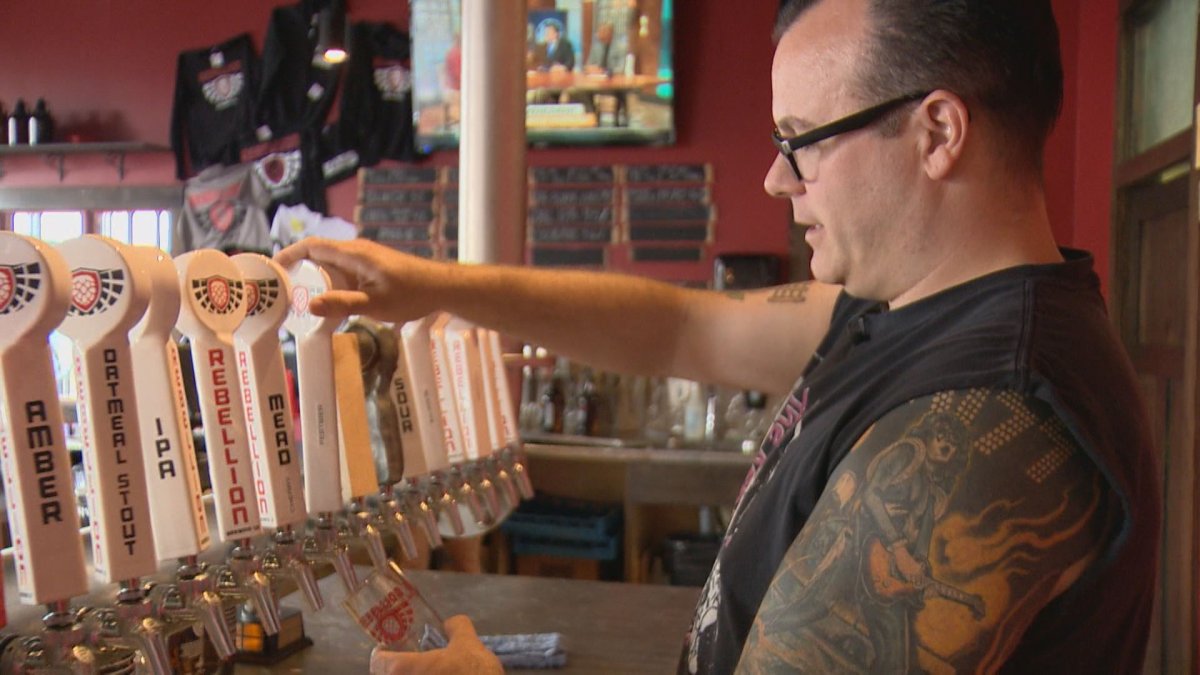With applications for the Canada Emergency Wage Subsidy (CEWS) now being accepted, Regina business owners are hoping the funding will be enough to keep employees on staff.

Employers may be eligible for a subsidy of 75 per cent of employee wages for up to 12 weeks, with a maximum of $847 per employee per week.
The eligible timeframe is retroactive, beginning from March 15 and ending on June 6, 2020.
Regina Chamber of Commerce CEO John Hopkins said he expects a significant number of Regina businesses to apply for the funding, but the exact number cannot yet be predicted.
He believes the funding is significant for local business owners who have been forced into a situation of economic uncertainty.
“It’s been a very challenging time for everyone, employees and employers” said Hopkins.
“This will help today in terms of getting the applications in. It’s something that is needed.”
- Freeland set to table 2024 federal budget in the House of Commons
- All a-boot tradition: A look at finance ministers’ budget shoes through the years
- Inflation ticked higher in March. Are Bank of Canada rate cuts still in the cards?
- Food service strike: Air Canada, WestJet refine menus at Toronto Pearson
For business owner Mark Heise, president of Rebellion Brewing Co, filling out the CEWS application is not something he ever wanted to happen. According to him, asking for help as a small business owner means swallowing his pride.
“We get into small businesses because we’re independent, and we want to do things on our own,” Heise said, “but these are unprecedented times.”
Since the coronavirus pandemic started, Heise has been forced to lay off several employees. Rebellion Brewing Co’s staff list has already shortened from 28 to 15.
Although CEWS is also meant to allow employers the opportunity to recall some of those laid off employees, Heise said the funding is not enough for him to get back to the position he was in before Covid-19.
“We were planning on posting more jobs right away,” he recalled. “We were planning on hiring summer students. Obviously all of that has been put on hold.
“If we qualify for the funding, it just means we won’t have to lay any more people off than we already have.”
The question of eligibility is one that weighs heavily on Heise, as he has already spent time applying to programs he was later deemed ineligible for.
“Last week was the new rent subsidy,” he said. “I spent an hour just trying to wrap my head around it, but it turned out we that don’t qualify.”
“Or the Saskatchewan emergency fund for businesses,” continued Heise, “I spent an hour going through that application process to find out at the end I don’t qualify. That’s an hour I could have spent trying to keep my business afloat.”
The process, Heise said, can be deflating.
“Everyone’s just trying to make sense of it. The amount of paperwork, the amount of qualifications…it’s exhausting.”
Heise said he hopes the government keeps consulting small business owners, especially prior to announcing new programs, in order to help them as much as possible.
“We want to be part of the solution,” he said. “We don’t have all the answers, but we just hope they keep listening and working with us.”
Hopkins hopes that governments continue to consider how the pandemic will change the economy for the future.
“When you take people’s livelihoods away from them for this long, it’s going to have a major impact,” said Hopkins. “There are a lot of factors at play here.”
Those who apply and are deemed eligible to receive CEWS can expect to have the funding within 10 business days.
Questions about COVID-19? Here are some things you need to know:
Health officials caution against all international travel. Returning travellers are legally obligated to self-isolate for 14 days, beginning March 26, in case they develop symptoms and to prevent spreading the virus to others. Some provinces and territories have also implemented additional recommendations or enforcement measures to ensure those returning to the area self-isolate.
Symptoms can include fever, cough and difficulty breathing — very similar to a cold or flu. Some people can develop a more severe illness. People most at risk of this include older adults and people with severe chronic medical conditions like heart, lung or kidney disease. If you develop symptoms, contact public health authorities.
To prevent the virus from spreading, experts recommend frequent handwashing and coughing into your sleeve. They also recommend minimizing contact with others, staying home as much as possible and maintaining a distance of two metres from other people if you go out.
For full COVID-19 coverage from Global News, click here.








Comments